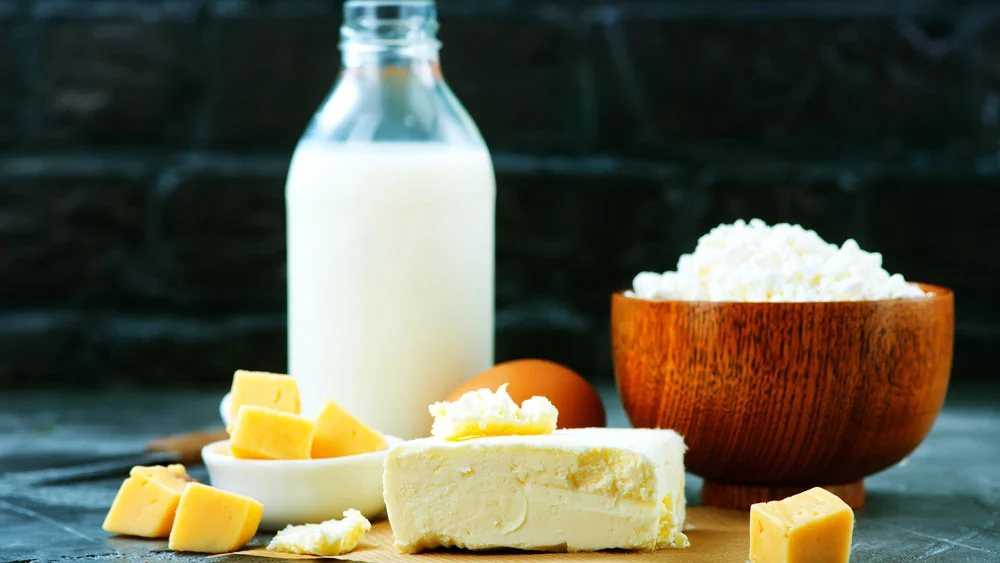Hello Belmoommy! Did you know that when a child reaches two years old, the World Health Organization (WHO) recommends stopping breastfeeding?
As we know, breast milk is a nutrient-rich food for children. Sometimes, you may feel worried about stopping breastfeeding because this nutritious intake will no longer be provided to the child.
However, you can alleviate this worry by replacing breast milk with pure cow’s milk, but of course, you must pay attention to the quality of the cow’s milk that will be given to the child. If you are still unsure, read this article until the end. We will show you the nutrients and benefits of cow’s milk that are good for your child’s growth and development.
Read More: Tips To Choose Cheese for Weaning Food
Nutrients in Milk
Milk is known as a source of protein. However, in addition to protein, milk also contains other minerals that are good for a child’s growth and development. Here are the nutrients in milk that are beneficial for children:
- Protein
Protein is an essential nutrient for building and repairing body cells, muscle tissue, bones, skin, hair, and nails. Protein also plays a role in the production of enzymes, hormones, and antibodies to maintain the body’s immune system.
- Calcium
Calcium is crucial for the formation of strong bones and teeth during a child’s growth period. Additionally, calcium also plays a role in muscle function, blood clotting, and nerve signal transmission.
- Vitamin A
Vitamin A supports eye health, maintains night vision, and is important for cell growth and tissue regeneration.
- Vitamin B
Milk contains several types of vitamin B, such as riboflavin (B2), niacin (B3), vitamin B6, and vitamin B12. Vitamin B plays a role in energy metabolism, red blood cell formation, and brain and nervous system function.
- Vitamin D
Vitamin D functions to increase the absorption of calcium and phosphorus in the body. This nutrient is essential for maintaining strong and healthy bones and teeth. Vitamin D deficiency can cause osteoporosis.
- Phosphorus
Phosphorus works together with calcium to form strong bones and teeth. Additionally, phosphorus also plays a role in cell function, DNA and RNA formation, and energy metabolism in the body.
- Potassium
Potassium is an essential mineral that helps regulate blood pressure and muscle function. Potassium also plays a role in maintaining fluid balance, nerve signal transmission, and carbohydrate metabolism.
- Fiber
Although the fiber content in milk is relatively low, this fiber is still important for maintaining digestive health. Fiber helps regulate bowel movements, prevents constipation, and reduces the risk of chronic diseases such as diabetes and heart disease.
Read More: Cheese Nutrition: An Essential Information, Highly Beneficial for the Body!
Benefits of Milk for Children
From the nutrient content outlined above, we can conclude that the benefits children will get from consuming milk are as follows:
- Maintains and improves bone and dental health. The calcium and phosphorus in milk play an important role in the formation and maintenance of strong bones and teeth.
- Provides essential nutrients for brain development. The B-complex vitamins, vitamin D, and choline in milk support brain development, memory, and concentration in children.
- Strengthens the body’s immune system. Vitamin A, vitamin D, and zinc in milk help boost a child’s immune system, making them more resistant to disease.
- Provides a good source of energy. Milk is rich in calories and easily digestible carbohydrates, making it a good source of energy to support a child’s activities.
- Supports muscle and tissue development. The protein in milk helps build and repair body tissues, as well as support muscle growth.
- Enhances the absorption of other nutrients in the body. Vitamin D in milk helps with calcium absorption, and B-complex vitamins help with the absorption of various other vitamins and minerals.
Read More: 5 Benefits of Cheese to the Body
Dairy-Free Alternatives for Children
Now, you have a good understanding of the benefits of milk for a child’s growth and development. However, it is undeniable that there are times when we cannot provide milk to our children.
Belmoommy doesn’t need to worry because you can overcome this by providing alternative dairy-free foods. Without forcing milk on your child, you can still provide similar nutrients. Here are some dairy-free alternatives that can be given to your child:
Cheese-Based Foods
Cheese is a good source of protein and calcium. You can choose low-lactose types of cheese such as cheddar, parmesan, or mozzarella cheese.
You can also choose a kids-favorite cheese snack for children, such as The Laughing Cow’s Belcube Cheese. This portable cheese snack can provide nutrition for Belmoommy’s family!
Read More: Healthy Diet Tips with Babybel Cheese
Bread and Pastries with Butter Spread
Butter is a good source of fat and vitamin A. Butter contains a small amount of lactose and can be used as a milk substitute in bread and pastry recipes.
Yogurt Dishes
Yogurt has a lower lactose content compared to fresh milk. Yogurt is rich in protein, calcium, and probiotics that are good for digestion. Mix yogurt with fresh fruits for a delicious and nutritious dish.
Remember to always consult with a doctor or nutritionist before changing your child’s diet, especially if your child has allergies or specific health conditions. Your doctor can help determine the right types of food or supplements to meet your child’s nutritional needs.
The Laughing Cow Indonesia is committed to providing high-quality, nutrient-rich cheese products to support the happiness and optimal growth of your little ones.







